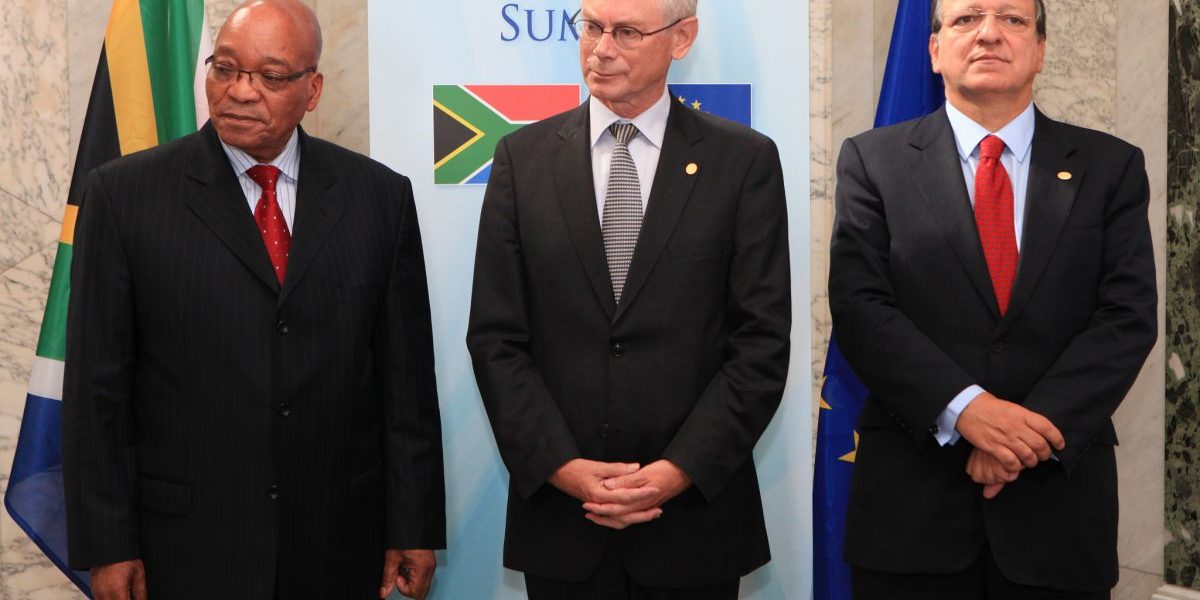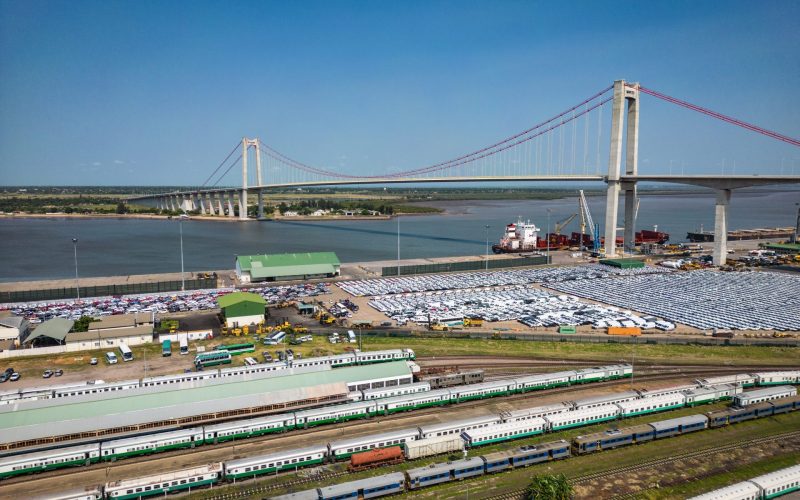EPAs are carried out under the aegis of the Cotonou Agreement which seeks to replace non-reciprocal export preferences which ACP countries have been receiving from the EU with reciprocal free trade arrangements negotiated at the regional level from January 2008 onwards in order to align the parties’ trade regimes with WTO rules. Accordingly, a number of ACP countries initialled interim Economic Partnership Agreement texts (IEPAs) at the end 2007.
| 09.00 -09.30 | Welcome and introduction |
| Elizabeth Sidiropoulos, National Director, SAIIA* | |
| 09.30 – 11.00 | Session 1: Making sense of Southern African Economic Integration |
| While EPAs have correctly received much criticism for undermining African regional integration plans, African countries’ multiple memberships in different regional bodies with conflicting integration objectives is a clear symptom of our need to get our own house in order. Clear direction as to where African countries, particularly in southern Africa, should proceed with respect to consolidation and deepening integration is urgently needed. So what pragmatic steps, from an AU perspective, should African leaders take to promote regional economic integration in southern Africa taking account of EPA talks? | |
| Moderator: Mr Moeletsi Mbeki, SAIIA Deputy Chairman* Speaker:Ms Stella Muchiri, Programme Manager, Regional Trade Facilitation Programme* Discussant: Mr Joshua Setipa, Counsellor, Office of the Director General, WTO*Download presentation [pdf] |
|
| 11.00 – 11.30 | Coffee break |
| 11.30 – 13.00 | Session 2: Who is driving regional integration in Southern Africa? |
| Southern Africa is South Africa’s backyard, yet the EU is deeply entrenched through trade, investment, and donor relations. Consequently the two are contesting for regional policy influence. Through EPAs the EU would effectively lock-in its former colonies to its sphere of influence including into an integration process modelled on its own design. However, currently BLNS countries receive massive revenue transfers from South Africa through SACU’s common revenue pool, a fact which gives Pretoria substantial dominance over policymaking in the group. These tensions, inter alia, culminated in Pretoria’s refusal to initial the SADC Interim EPA. So what is the long-term impact of EU-SA rivalry on regional integration in Southern Africa? | |
| Moderator: Dr Eltie Links, SAIIA exco, and former SA Ambassador to the EU* Speaker: Mr Peter Draper, SAIIA* Discussant: Dr Happy Fidzani, BIDPA*Download presentation [pdf] |
|
| 13.00 – 14.00 | Lunch break |
| 14.00 – 15.30 | Session 3: Taking stock: what is in the interim EPA? |
| Eastern and Southern African countries participated in the EPA talks under SADC, ESA, and EAC. However, only about half of the countries initialed interim EPAs at the end of 2007. This session presents IEPA signatories’ liberalisation commitments and discusses the difficulties to align the schedules in line with countries’ regional integration commitments. Furthermore countries’ legal obligations in the IEPAs; what provisions of the SADC, ESA and EAC EPA are inferior/superior compared to other EPA texts and whether these discrepancies can be rectified; and. options to align the different commitments made by member states of the same EPA group and those of different groups will be discussed. | |
| Moderator: Ms Paulina Elago, SA Tradehub* Presenter: Dr Mareike Meyn, ODI* Discussant: Mr Mike Humphries, SADC*Download presentation [pdf] |
|
| 15.30 – 16.00 | Coffee break |
| 16.00 – 17.30 | Session 4: Contentious issues in the interim EPAs |
| The declaration of AU ministers identified a set of contentious issues in the IEPAs including; the definition of SAT, transitional periods, export taxes, MFN clause, bilateral safeguards, non-exclusion clause, … a host of elements that require a closer look at all-Africa level, and what they mean for the Southern African EPA. | |
| Moderator: Ms Kunyalala Maphisa, BUSA* Presenter: Dr San Bilal, ECDPM* Discussants: MrJürgen Hoffmann, ATF Namibia*Download presentation [pdf] |
|
| 17.45- 19.00 | Cocktail |
| Talk by Mr Joshua Setipa, Counsellor, Office of the Director General, WTO* “What implications does the global financial crisis hold for the WTO and African trade?” |
|
|
|
November 25th |
| 09.30 – 11.00 | Session 5: Towards a comprehensive EPA? Services & Investment |
| For a full comprehensive EPA, the EU insists to include agreements on services and investment. What are the provisions in the CARIFORUM text? What can African countries learn from CARIFORUM? What are the chances/risks of including services in an EPA from a South African and BLNS standpoint? What capacity and adjustment challenges will be faced by EPA signatories in implementing the agreements? How would any commitments on investment in an EPA relate to SADC’s Finance and Investment Protocol? What are the provisions in the CARIFORUM text? What can southern African countries learn from CARIFORUM? What are the merits and drawbacks of including investment commitments in the EPAs? Will the SADC countries be able to implement their obligations on investment? If not, what capacity assistance do they need? | |
| Moderator: Ms Lynette Gitonga, Swaziland* Presenters: Mr Nkululeko Khumalo, SAIIA* Professor Riekie Wandrag, UWC* Discussant: Dr. Chris Stevens, ODI*Download presentation [pdf]Download presentation [pdf] |
|
| 11.00 – 11.30 | Coffee break |
| 11.30 – 13.00 | Session 6: Towards a comprehensive EPA? Competition & Government Procurement |
| What provisions on competition and public procurement does the CARIFORUM EPA provide for? What are countries obligations and what is the potential development impact? Would these provisions be in the interest of the SADC countries orhow would they need to be modified to mirror SADC interests? What capacity assistance would be needed in these areas? | |
| Moderator: Dr. Regine Qualmann, GTZ Presenter: Kamala Dawar, University of Amsterdam Law School* Discussant: Mr Kekobad Patel, CTA, Mozambique*Download presentation [.pdf] |
|
| 13.00 – 14.00 | Lunch |
| 14.00 – 16.00 | Final Session: Bridging Politics and Technical Issues – Towards the Holy Grail? |
| The status quo in regional integration in the sub-continent is bound to change in the near future. What should be done to tackle both the political and technical challenges posited by the EPAs. What role should the EU play in the process of aligning the EPA commitments of SACU, SADC, COMESA, and EAC and will these RECs survive the forces of change? What about the COMESA and SADC aspirations to form customs unions? Or is a new vision of regional economic integration required, one less dependent on Customs Unions and more focused on facilitating trade? | |
| Moderator: Dr Greg Mills, Brenthurst Foundation* Panelists (15 minutes each): Mr Xavier Carim, South African, Department of Trade and Industry*, Dr Moses Tekere, COMESA*, Mr Mark Bennett, Regional Trade and Industry Consultant |
|
|
End of day 2 |
Subsequent to the conference the following reports have appeared in the media:
Neighbours accuse SA of acting like ‘Big Brother’
Business Day – Johannesburg,South Africa
SA farm, fish sectors face EU exports
Business Day – Johannesburg,South Africa
Africa needs solid strategy for Doha
Business Day – Johannesburg,South Africa
Trade Talks Challenge Governments to Practical Action
allAfrica.com








